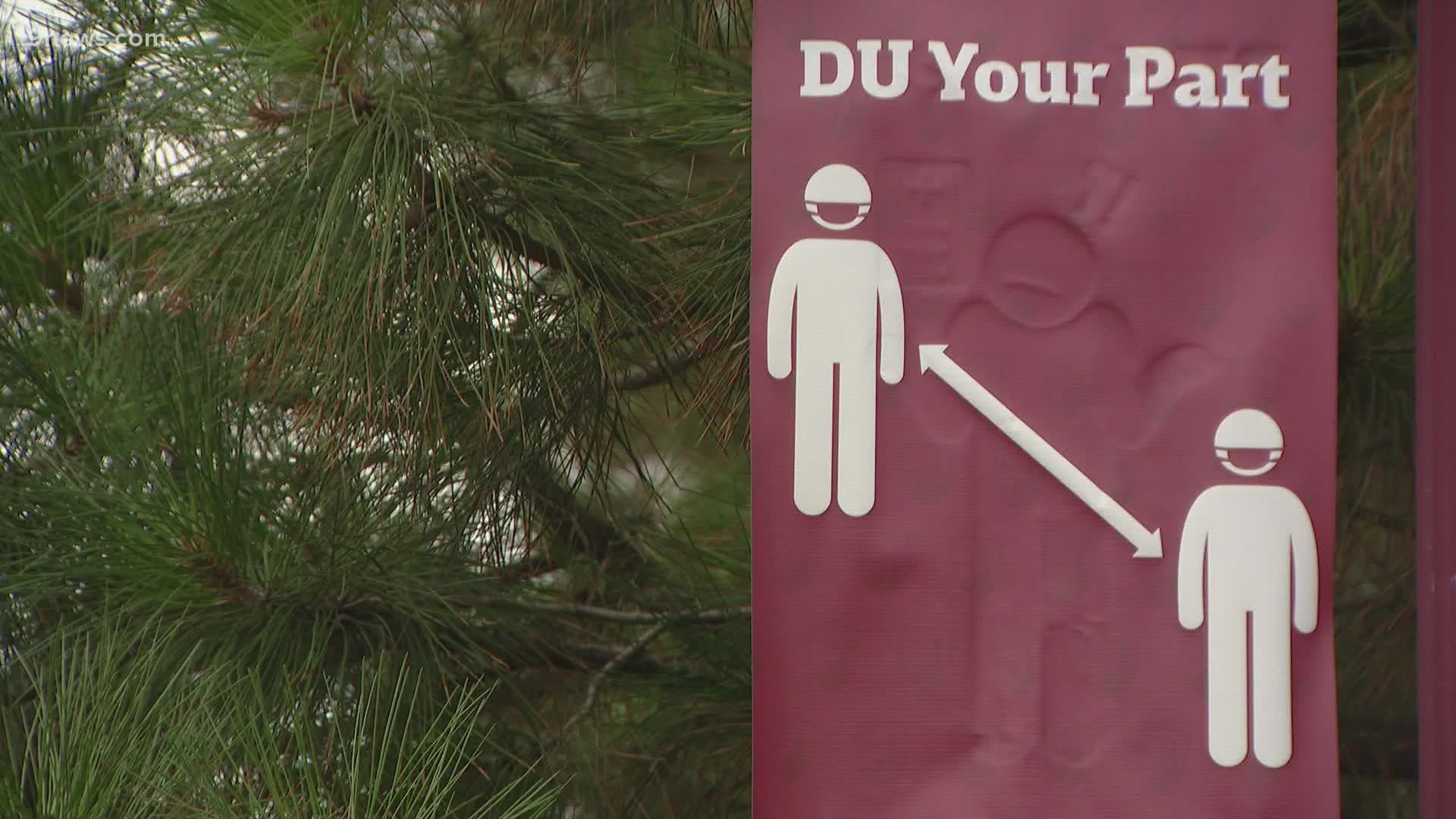DENVER — A quiet campus at the University of Denver is about to get a lot louder when people return from summer break.
"This is our care pod where we provide testing," said Sarah Watamura, the school's COVID coordinator, pointing out the school's permanent trailer where every student and staff member will be tested when they get back.
Watamura believes 90% of them will also be vaccinated.
“So we were one of the first schools to make the decision to mandate vaccines," she said.
Watamura said 77% of the 13,000 staff and students, who will be back on campus, are currently vaccinated. They used the university's medical record system to keep track.
“So we have everyone upload a copy of their vaccine card," she said. "As long as it’s got their name, date of birth, type of vaccine, vaccination dates and vaccinator, then we’re able to document that they had a vaccine that we accept at the right dosing schedule and then we can document when they reached that vaccination date."
For entities whose staff was vaccinated in Colorado, employers can check vaccination records of their employees through the Colorado Immunization Information System online.
When the school announced vaccines would be mandatory back in April, Watamura said just two students who had made deposits decided not to come and there were no complaints from faculty.
The two hurdles of the process, she said, came down to exemptions and international vaccines without FDA authorization.
“We decided to follow the World Health Organization listed vaccines in addition to the FDA authorized vaccines," she said because of their international students. "But, that’s definitely a process you’d want to work through."
Watamura said they spent the most time determining what people would need to document an exemption.
“So for a medical exemption, people have to submit a letter from a doctor who is an expert in that type of medicine that the exemption is relevant for," she said.
Their religion exemption follows close to Colorado's current non-medical exemption process which requires a one page form to be filled out and turned in.
“We are running at about 2.5% exemptions, so at this point we feel comfortable that we’re gonna get over 90% vaccinated on campus," she said.
SUGGESTED VIDEOS: COVID-19 Vaccine

